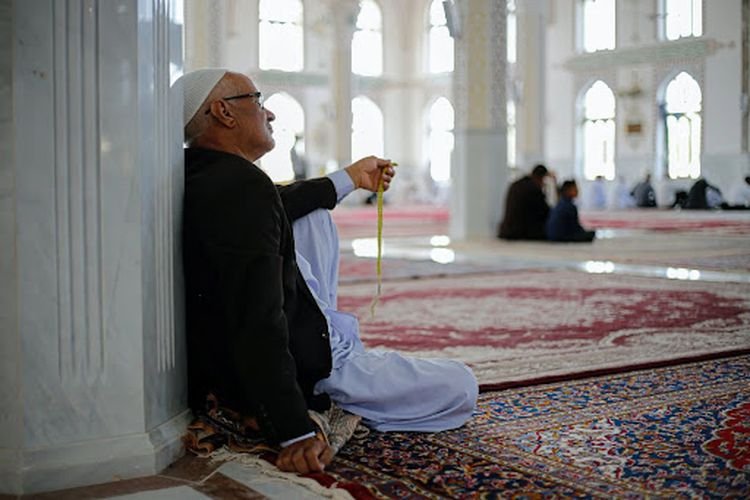Sabil Al-Quran
What Is The Meaning Of Iman In Islam?
Discovering Iman meaning in Islam is an inspiring journey that deepens one’s connection to Allah and enriches the soul.
At Sabil Al-Quran, we invite you to explore the essence of Iman, a cornerstone of Islamic belief that not only strengthens our faith but also guides us in every aspect of life.
Uncover how true faith fosters resilience, shapes character, and brings tranquility to the heart.
Join Sabil Al-Quran today and delve into the teachings that illuminate the profound beauty and purpose of iman, islam.
What Is Iman In Arabic: Imaan Meaning In Islam
In Islam, iman meaning in arabic (إيمان) is defined as a deep, inner belief in the fundamental principles of faith. This includes belief in Allah, His angels, His revealed books, His prophets, the Day of Judgment, and divine destiny (Qadar).
iman meaning in islam involves not only intellectual acknowledgment but also heartfelt conviction, trust, and love for Allah.
It is a constant, guiding presence in a Muslim’s life, influencing actions, choices, and attitudes in alignment with Islamic values.
Iman differs from the other pillars of Islam, as it is considered the foundation of belief rather than a set of physical practices.
The Five Pillars of Islam are the core acts of worship in Islam:
Shahada (Declaration of Faith)
The verbal testimony of faith in Allah and the prophethood of Muhammad (peace be upon him).
Salah (Prayer)
The five daily prayers that connect Muslims directly with Allah.
Zakat (Charity)
The act of giving to those in need as a means of purifying one’s wealth.
Sawm (Fasting during Ramadan)
Abstaining from food, drink, and sinful behavior from dawn to sunset as an act of devotion.
Hajj (Pilgrimage to Mecca)
The journey to the holy city of Mecca, required at least once in a lifetime if possible.
While the Five Pillars are outward expressions of Islam, Iman is the inner dimension of faith.
The actions of the Five Pillars strengthen and demonstrate Iman, yet Iman itself is a heartfelt commitment that is the root of a Muslim’s relationship with Allah.
Thus, Iman and the Five Pillars work together, with Iman as the source of sincere faith, and the Pillars as its manifestation in daily life. . For further reflection, you may explore how many times Jannah is mentioned in the Quran, gain insights into the meaning of Ijazah, or learn more about the meaning of Hadith in Islam.

Names of Allāh: Al-Mu’min
The name Al-Mu’min (المؤمن) is one of the 99 beautiful names of Allah, and it translates to “The Giver of Faith,” “The Source of Peace,” or “The Guarantor of Security.” This name highlights Allah as the One who provides a sense of safety, peace, and faith to His creation.
As Al-Mu’min, Allah assures protection, both spiritually and physically, guiding believers through faith and protecting them from harm.
He provides assurance of the truth, revealing what is right and what brings inner peace to the hearts of those who believe.
Believers turn to Al-Mu’min for comfort and trust, finding in Him the source of all security and assurance.
Reflecting on this name can inspire trust in Allah’s wisdom and reliance on His protection, reminding Muslims to seek peace and reassurance in their faith.
What Are The Signs Of A Strong Iman?
Signs of strong Iman (faith) in Islam reflect a deep connection to Allah and a commitment to living according to His guidance. Here are some key indicators:
Consistency in Worship:
Regular prayer (Salah), remembrance of Allah (dhikr), and reciting or studying the Quran. A strong Iman leads a person to seek closeness to Allah through consistent acts of worship and reflection.
Patience in Trials:
Enduring hardships with patience (sabr) and faith in Allah’s wisdom. A believer with strong Iman sees trials as tests from Allah, striving to remain steadfast and hopeful.
Gratitude in All Situations:
Regularly expressing gratitude to Allah for both blessings and challenges. This includes recognizing Allah’s favors and saying Alhamdulillah (Praise be to Allah) in all circumstances.
Avoidance of Sinful Acts:
A conscious effort to avoid actions that displease Allah, such as lying, cheating, or engaging in harmful behavior. Strong Iman creates a sense of responsibility to uphold Islamic morals.
Trust and Reliance on Allah (Tawakkul):
A deep trust in Allah’s plan, knowing that whatever happens is by His will. Strong Iman enables a person to be content, leaving the outcome to Allah while striving in their efforts.
Good Character and Kindness:
Treating others with respect, honesty, and compassion. Strong Iman encourages believers to follow the Prophet Muhammad’s example of mercy and kindness toward others.
Sincere Repentance and Humility:
Regularly seeking forgiveness from Allah through istighfar (repentance) and acknowledging one’s mistakes. A believer with strong Iman is humble and continuously seeks self-improvement.
Desire for Knowledge:
Actively seeking Islamic knowledge to understand faith more deeply and apply it in daily life. This includes learning more about the Quran, such as how many Pages Are In The Quran, the Sunnah, and Islamic principles.
Inner Peace and Contentment:
Experiencing a sense of peace and tranquility that comes from strong faith in Allah, regardless of life’s ups and downs. This inner peace is a result of trusting in Allah’s wisdom and timing.
Helping Others Selflessly:
Willingness to support and assist others, whether through charity, encouragement, or community service. A person with strong Iman understands the importance of generosity and kindness in Islam.
These signs reflect a heart deeply connected to Allah and dedicated to embodying Islamic values. As Iman grows, so does the believer’s capacity for goodness, patience, and trust in Allah’s guidance.

What Are The 5 Rules Of Iman?
The Imaan meaning in islam is comprehensive, covering core beliefs known as the Articles of Faith or Pillars of Iman. These five main principles are central to a Muslim’s understanding of faith and serve as the foundation of Islamic belief. Here’s a summary of these five essential beliefs:
1. Belief in Allah (Tawhid):
Muslims believe in the oneness of Allah (God) as the Creator and Sustainer of everything. He is unique, without partners, and possesses absolute authority and mercy. This belief in Tawhid, the concept of Allah’s oneness, is central to Islam and forms the basis of all other beliefs and practices.
2. Belief in the Angels (Mala’ika):
Muslims believe in angels as special, spiritual beings created by Allah to carry out specific tasks, like conveying revelation, recording deeds, and overseeing the universe. Angels act only by Allah’s command and have various roles, including delivering messages to prophets, such as the Angel Gabriel (Jibril) who brought revelations to Prophet Muhammad.
3. Belief in the Holy Books (Kutub):
Muslims believe that Allah revealed divine guidance through holy scriptures. These include the Torah (Tawrat), the Psalms (Zabur), the Gospel (Injil), and the Quran. The Quran is considered the final, unaltered, and complete revelation, meant to guide humanity until the end of time.
4. Belief in the Prophets and Messengers (Rusul):
Muslims believe that Allah sent prophets and messengers to guide humanity with His message. These include well-known figures like Adam, Noah, Abraham, Moses, Jesus, and finally, Muhammad Who Is The World Best Man (peace be upon them all), who is regarded as the last prophet. Muslims honor all prophets equally as they were chosen by Allah to convey His guidance.
5. Belief in the Day of Judgment and the Afterlife (Akhirah):
Muslims believe in a Day of Judgment when all individuals will be resurrected and held accountable for their deeds. Those who led righteous lives will be rewarded with Paradise (Jannah), while those who rejected faith or led sinful lives face punishment in Hell (Jahannam). This belief instills a sense of responsibility and purpose, encouraging believers to live in alignment with Islamic values.
There is often a sixth belief included, Belief in Qadar (Divine Decree), which asserts that everything happens according to Allah’s will and knowledge.
Together, these articles of faith shape a Muslim’s understanding of life, the universe, and their role within it, emphasizing a deep connection to Allah, ethical conduct, and the pursuit of the hereafter.
How Many Types Of Iman Are There?
In Islamic teachings, Iman (faith) is often understood in three main types that define the levels and dimensions of belief:
- Iman al-Qalb (Faith of the Heart):
This is the innermost level of Iman, involving sincere belief and conviction in the heart. It includes trusting Allah, having certainty in His existence, and believing in the unseen (such as angels, divine destiny, and the Day of Judgment). This type of Iman reflects one’s inner faith and spiritual connection to Allah.
- Iman al-Lisan (Faith of the Tongue):
This type involves verbally affirming one’s belief, most notably through the Shahada, or declaration of faith: “There is no god but Allah, and Muhammad is the Messenger of Allah.” Saying this with conviction demonstrates a Muslim’s acknowledgment of faith publicly and is essential in Islam.
- Iman al-Jawarih (Faith of the Limbs or Actions):
This refers to practicing faith through one’s actions. It includes performing the Five Pillars of Islam (such as prayer, fasting, and charity), following Islamic ethics, and living in accordance with Allah’s commands. It’s the outward expression of faith that reinforces and reflects Iman in everyday life.
These types of Iman work together to create a holistic faith. True Iman integrates belief in the heart, affirmation by the tongue, and actions that demonstrate a Muslim’s commitment to Allah. When all three are present, Iman is considered complete, encompassing a comprehensive devotion in both belief and practice.

10 Things That Can Decrease Iman
Here are 10 things that can decrease Iman (faith) in Islam, along with brief explanations:
- Neglecting Prayer (Salah): Missing obligatory prayers or being inconsistent in performing them weakens one’s connection with Allah and can gradually reduce Iman.
- Lack of Quran Recitation: The Quran is a source of guidance and spiritual nourishment. Not engaging with it can lead to a lack of spiritual connection and guidance, impacting Iman.
- Engaging in Sinful Actions: Regularly committing sins without seeking forgiveness, whether they are major or minor, hardens the heart and distances a person from Allah’s mercy.
- Bad Company: Associating with people who have negative influences, mock religious values, or encourage sinful behavior can lead to a weakened resolve and reduced Iman.
- Neglecting Dhikr (Remembrance of Allah): Regular remembrance strengthens faith, so neglecting it can reduce mindfulness of Allah and weaken one’s faith.
- Harboring Arrogance and Pride: Having an inflated sense of self-importance makes it difficult to submit to Allah sincerely, harming one’s spiritual humility and Iman.
- Being Distracted by Materialism: Overindulgence in worldly pleasures and chasing wealth or status often leads to neglect of spiritual obligations and a detachment from Allah.
- Ignoring Knowledge and Worship: Avoiding learning about Islam or neglecting acts of worship can result in a lack of spiritual growth, leading to stagnant or weakened Iman.
- Not Seeking Forgiveness (Tawbah): Failing to repent sincerely for sins prevents the purification of the heart, allowing negative habits to build up and impact Iman.
- Engaging in Harmful Media and Entertainment: Consuming inappropriate or excessive media content can desensitize one’s heart, impacting moral values and decreasing spiritual awareness.
Actively addressing these factors can help preserve and strengthen Iman, keeping one connected with Allah and rooted in Islamic teachings.
What Are The Relationships Between Believers Of Islam?
In Islam, believers are considered part of a global community, or Ummah, and are encouraged to build strong, supportive relationships with each other based on several key principles. Here are some of the main ways that relationships among believers are defined:
- Brotherhood and Sisterhood: Muslims are seen as brothers and sisters to one another, transcending race, nationality, and social status. The Prophet Muhammad (peace be upon him) said, “The believers are like a single body…” This promotes unity, compassion, and solidarity among all Muslims.
- Mutual Support: Islam encourages believers to help each other in times of need. Acts of charity, kindness, and mutual assistance strengthen bonds within the community, fulfilling social and spiritual obligations.
- Respect and Good Manners: Muslims are encouraged to interact with each other respectfully and to use kind words. Respecting each other’s dignity and showing good manners fosters harmony and mutual respect.
- Forgiveness and Reconciliation: Believers are urged to forgive one another and resolve conflicts peacefully. Holding grudges and letting conflicts linger is discouraged as it harms the unity of the community.
- Advice and Guidance: Muslims are encouraged to offer sincere advice and gently guide each other toward goodness. Constructive criticism and reminders about faith are encouraged, as they help everyone maintain and grow their Iman.
- Praying for One Another: Islam encourages Muslims to pray for each other’s well-being, forgiveness, and success. Supplicating for others, especially in their absence, builds a sense of care and empathy within the community.
- Equal Rights and Justice: Believers are expected to treat each other with fairness and justice, regardless of personal differences. Islam places strong emphasis on upholding each person’s rights within the community.
- Avoiding Backbiting and Gossip: Islam prohibits backbiting and gossip, which can harm relationships and spread distrust. Muslims are urged to speak well of each other or remain silent.
- Visiting the Sick and Supporting the Bereaved: Muslims are encouraged to visit those who are ill, comfort the grieving, and attend funerals, reflecting empathy and solidarity during difficult times.
- Promoting Peace and Brotherhood: Believers are called to actively work toward peace and avoid divisive behavior, building bonds that reflect the love and unity emphasized in Islamic teachings.
These relationships are based on the values of love, mercy, respect, and justice, which all aim to create a strong, unified, and caring community that supports each member’s well-being and spiritual growth.

What Does The Quran Say About Iman?
The Quran places significant emphasis on Iman (faith), describing it as the foundation of a Muslim’s relationship with Allah and as essential to the path of righteousness and success.
Iman is mentioned in various verses to emphasize its qualities, rewards, and the behaviors that strengthen it. Here are some important concepts about Iman from the Quran:
ءَامَنَ ٱلرَّسُولُ بِمَآ أُنزِلَ إِلَيْهِ مِن رَّبِّهِۦ وَٱلْمُؤْمِنُونَ كُلٌّ ءَامَنَ بِٱللَّهِ وَمَلَٰٓئِكَتِهِۦ وَكُتُبِهِۦ وَرُسُلِهِۦ لَا نُفَرِّقُ بَيْنَ أَحَدٍ مِّن رُّسُلِهِۦ وَقَالُوا۟ سَمِعْنَا وَأَطَعْنَا غُفْرَانَكَ رَبَّنَا وَإِلَيْكَ ٱلْمَصِيرُ
Iman as the Foundation of Belief: The Quran defines Iman as belief in Allah, His angels, His books, His messengers, the Day of Judgment, and Qadar (divine decree).
Surah Al-Baqarah (2:285)
- Iman and Good Deeds: The Quran repeatedly emphasizes that true Iman must be coupled with righteous actions. In Surah Al-Asr, Allah links faith with good deeds:
وَٱلْعَصْرِ * إِنَّ ٱلْإِنسَٰنَ لَفِى خُسْرٍ * إِلَّا ٱلَّذِينَ ءَامَنُوا۟ وَعَمِلُوا۟ ٱلصَّٰلِحَٰتِ وَتَوَاصَوْا۟ بِٱلْحَقِّ وَتَوَاصَوْا۟ بِٱلصَّبْرِ
“By time, indeed, mankind is in loss, except for those who have believed and done righteous deeds and advised each other to truth and advised each other to patience.”
Surah Al-Asr (103:3)
- Increasing Iman: The Quran explains that Iman is not static but can increase with worship and reflection. In Surah Al-Anfal, 8:2, Allah describes the believers as those whose faith increases when they hear His revelations:
إِنَّمَا ٱلْمُؤْمِنُونَ ٱلَّذِينَ إِذَا ذُكِرَ ٱللَّهُ وَجِلَتْ قُلُوبُهُمْ وَإِذَا تُلِيَتْ عَلَيْهِمْ ءَايَٰتُهُۥ زَادَتْهُمْ إِيمَٰنًا وَعَلَىٰ رَبِّهِمْ يَتَوَكَّلُونَ
“The believers are only those who, when Allah is mentioned, their hearts become fearful, and when His verses are recited to them, it increases them in faith; and upon their Lord they rely.”
Surah Al-Anfal (8:2)
- The Rewards of Iman: Allah promises rewards both in this world and the hereafter for those who have sincere faith. Surah An-Nisa, 4:57, highlights the eternal blessings prepared for the faithful:
“وَالَّذِينَ آمَنُوا وَعَمِلُوا الصَّالِحَاتِ سَنُدْخِلُهُمْ جَنَّاتٍ تَجْرِي مِن تَحْتِهَا الْأَنْهَارُ خَالِدِينَ فِيهَا أَبَدًا…”
وَٱلَّذِينَ ءَامَنُوا۟ وَعَمِلُوا۟ ٱلصَّٰلِحَٰتِ سَنُدْخِلُهُمْ جَنَّٰتٍ تَجْرِى مِن تَحْتِهَا ٱلْأَنْهَٰرُ خَٰلِدِينَ فِيهَآ أَبَدًا لَّهُمْ فِيهَآ أَزْوَٰجٌ مُّطَهَّرَةٌ وَنُدْخِلُهُمْ ظِلًّا ظَلِيلًا
“But those who believe and do righteous deeds – We will admit them to gardens beneath which rivers flow, wherein they will abide forever…”
Surah An-Nisa (4:57)
- Trials as a Test of Iman: The Quran also teaches that trials and hardships are tests to strengthen and purify Iman, reminds believers of the resilience required to maintain Iman in adversity:
أَمْ حَسِبْتُمْ أَن تَدْخُلُوا۟ ٱلْجَنَّةَ وَلَمَّا يَأْتِكُم مَّثَلُ ٱلَّذِينَ خَلَوْا۟ مِن قَبْلِكُم مَّسَّتْهُمُ ٱلْبَأْسَآءُ وَٱلضَّرَّآءُ وَزُلْزِلُوا۟ حَتَّىٰ يَقُولَ ٱلرَّسُولُ وَٱلَّذِينَ ءَامَنُوا۟ مَعَهُۥ مَتَىٰ نَصْرُ ٱللَّهِ أَلَآ إِنَّ نَصْرَ ٱللَّهِ قَرِيبٌ
“Or do you think that you will enter Paradise while such [trial] has not yet come to you as came to those who passed on before you”
Surah Al-Baqarah (2:214)
The Quran highlights Iman as both a belief system and a call to action, one that requires constant reflection, good deeds, and resilience, promising believers both spiritual growth and eternal rewards.
At Sabil Al-Quran, we are dedicated to guiding learners of all ages toward a deeper connection with the Book of Allah. Our online Quran courses combine authentic Islamic knowledge with modern teaching methods, making it easier for you to learn, understand, and apply the Quran in your daily life. Whether you’re looking to perfect your recitation, explore the meanings of the Quran, or strengthen your Iman, Sabil Al-Quran provides trusted, high-quality programs, including a specialized Islamic Studies Course that helps you achieve your spiritual goals with confidence and clarity.
In conclusion, Iman in Islam is more than just belief; it’s the heart and soul of a Muslim’s connection with Allah, shaping character, actions, and outlook on life.
Through deepening our understanding of Iman, we draw closer to inner peace, resilience, and spiritual fulfillment.
At Sabil Al-Quran, we’re here to guide you on this journey, offering insights, learning resources, and support to strengthen your faith and enrich your spiritual path.
Embark with us as we explore the essence of Iman together discover, believe, and transform.
FAQS: Imaan Meaning In Islam
What is the basic definition of Iman in Islam?
Iman, islam refers to faith or belief in Islam. It is the conviction in the heart that Allah is the one true God and acceptance of all essential Islamic principles, including belief in His prophets, angels, holy books, and the Day of Judgment.
How is Iman different from Islam?
Islam is the submission to Allah’s commands and involves both belief and practice, while Iman specifically relates to faith and belief in Allah and the unseen. Iman is considered the foundation of Islam; without it, the actions and rituals of Islam lose their essence.
What are the main components of Iman?
Iman consists of belief in Allah, His angels, His revealed books, His messengers, the Day of Judgment, and in divine decree (Qadar), meaning that Allah has control over all aspects of existence.
How many types of Iman are there?
Generally, Iman is categorized into three types: Iman bi’l-qalb (faith in the heart), Iman bi’l-lisan (faith expressed verbally), and Iman bi’l-amal (faith practiced through actions).

